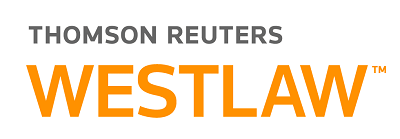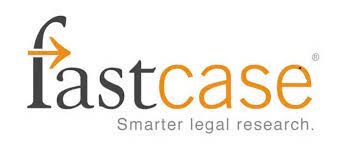No legal practice can thrive without the foundation of research and findings. As a legal expert, you understand the dynamic nature of the legal industry. Therefore, legal research plays a crucial role for law students, lawyers, practitioners, and academicians. However, balancing high-quality legal research with client demands and low-value tasks can present challenges. Ambitious and progressive legal professionals leverage legal research software and legal research services to streamline processes and focus on strategic work. This new approach empowers lawyers to gain an edge over competitors and survive in the stringent market.
In this blog, we will dive into various techniques and legal research software to enhance your research efficiency.
Techniques of Legal Research
1. Understand the Research Objective:
Defining the purpose and scope of legal research helps you maintain focus and identify the necessary information.
2. Secondary Sources:
Utilize legal encyclopedias, treatises, law review articles, and legal textbooks as secondary sources. These provide general overviews, analysis, and commentary on legal issues, aiding familiarity with the topic.
3. Case Law Research:
Reviewing relevant court cases is essential. Begin with primary sources like case reporters or digests, including full texts or court decision summaries. Additionally, Online legal research databases offer access to case law from various jurisdictions.
4. Statutory Research:
Identify and analyze relevant statutes, regulations, and legislative materials using statutory codes, session laws, and administrative codes. Moreover, legal databases get access to advanced search functionalities for efficient statutory research.
5. Legal Citators:
Employ legal citators like Shepard’s or KeyCite to check the validity and subsequent treatment of a case or statute. Citators offer information on history, subsequent appellate treatment, and citing references.
6. Legal Databases:
Leverage online legal research platforms, such as Westlaw, LexisNexis, or Bloomberg Law, which offer extensive collections of legal materials, including cases, statutes, regulations, and secondary sources. Advanced search options and filters refine research results.
7. Judicial and Legislative Websites:
Visit official legal research websites of courts and legislative bodies to access recent court opinions, rules, regulations, statutes, and other legal documents.
8. Legal Journals and Law Reviews:
Explore legal journals and law reviews for scholarly articles, commentaries, and analyses on specific legal topics. Online databases and libraries often provide access to these publications.
9. Online Tools for Legal Research:
Leverage legal research guides, legal blogs, legal dictionaries, and legal research tutorials available online. These tools provide additional insights, guidance, and explanations to enhance understanding of legal concepts.
10. Collaboration and Networking:
Engage with fellow legal professionals, join legal research groups or forums, and participate in discussions to benefit from collective knowledge and exchange ideas. Collaboration facilitates the discovery of valuable sources, diverse perspectives, and new research techniques.
What are the best legal research software that you can leverage for your practice?
Nearly 60% of lawyers regularly use free online tools as part of their research arsenal, while 56% depend on fee-based online legal research tools. However, there are several tools available in the market that claims to be the best, but we are sharing a curated list to narrow down your options:
1. LexisNexis
LexisNexis, a digital disruptor in the legal industry, has revolutionized how lawyers conduct research and extract relevant information for various cases. Gone are the days of relying solely on library resources. With the largest legal and public record information database, LexisNexis has made information extraction a breeze.
By adopting continuous delivery processes pioneered by consumer technology players, LexisNexis has empowered lawyers to work more efficiently and establish stronger client relationships. Whether you’re a paralegal, attorney, law student, or running your practice, LexisNexis offers innovative features tailored to your needs.
Experience the power of LexisNexis:
- Draft documents effortlessly using automated templates for pleadings, motions, and more.
- Access practical guidance from industry experts to enhance your research and stay up-to-date.
- Seamlessly prepare for depositions or trials, streamlining your workflow.
- Effectively coordinate and manage facts and evidence, ensuring a comprehensive case strategy.
2. Bloomberg Law
Bloomberg Law is a comprehensive software that brings together the latest in legal tech, robust research tools, trusted news, expert analysis, and business intelligence to help you excel in your field.
Here’s why Bloomberg Law stands out from the rest:
- Boost your productivity with our AI-driven tools and data analytics. Leverage deep expertise and advanced features to streamline your research, saving you valuable time and effort.
- The platform believes in staying at the forefront of innovation. As an existing subscriber, you’ll benefit from continuous product enhancements at no extra cost. Experience the latest advancements in legal technology without breaking the bank.
- Enjoy unlimited, unmetered access to a wealth of content, all on a single platform. From primary and secondary sources to trusted news and business intelligence, find everything you need conveniently in one place.
- Stay ahead of the game with breaking news delivered to you as it unfolds. With an extensive network of over 250 reporters worldwide, including the largest number of credentialed reporters on the Hill, you’ll be the first to know about crucial developments.
3. Westlaw
Westlaw is also a prominent online legal research platform, delivering unmatched accuracy and speed. Its dynamic, ever-growing, and easily searchable content set includes news, legislation, case law, commentary, current awareness alerts, and legal materials specific to your area.
- It is more than a traditional legal research platform. It provides access to journals, region-specific materials, and extensive news sources to increase efficiency.
- Every five minutes, current awareness is updated across all cases and legislation to inform you about out-of-date laws, appeals, or pending amendments.
- Get access to 500,000 case analysis documents, over 2 million legislations documents, and 900.00+ journal documents.
4. Fastcase
Fastcase offers comprehensive access to case law, statutes, regulations, constitutions, court rules, and law review articles. It is one of the world’s largest online law libraries. Simplifying legal research and analysis, Fastcase enables faster and more accessible exploration of legal information.
Integration with Clio enhances the user experience by seamlessly monitoring time spent on legal research and maintaining organized records. Within Fastcase, the Clio integration allows users to effortlessly:
- Create accurate time entries in Clio for research activities
- Save research results as case documents directly in Clio
- Keep research materials organized on a per-case basis
While Fastcase offers various paid desktop plans (with a free trial available). It has a free mobile app that is accessible for iOS, Android, and Windows Phone users.
The mobile app enables on-the-go access to Fastcase’s extensive legal research database, ensuring convenience and flexibility for users. It’s has partnered with numerous bar associations, allowing members to access their bar dues.
5. FindLaw
FindLaw for Legal Professionals division aims to enhance accessibility to the law. The platform provides free online legal content, such as case law from state and federal courts, case summaries, statutes, and legal news.
FindLaw also provides a searchable database of US Supreme Court decisions since 1760. Users can browse opinions by year, and US Reports volume number or conduct specific searches based on the party name, case title, citation, full text, and docket number. Additionally, FindLaw features an archive of Supreme Court opinion summaries since 2000. Moreover, you can opt for legal research services and let the experts manage your software and do the job for you.
6. Justia
Justia offers an extensive, free database for researching federal and state cases, codes, statutes, regulations, and articles. Additionally, Justia provides a convenient way to stay up-to-date on specific practice areas through its free newsletters.
These newsletters include daily summaries of opinions from all federal appellate courts and all 50 state supreme courts and weekly summaries of opinions within specific practice areas. By subscribing to these newsletters, legal professionals can effortlessly stay informed about the latest developments in their field.
Legal Support World has got you covered if you are looking for a trusted legal research services company. We have more than 15+ years of experience delivering exceptional legal support services to businesses, legal firms, solo practitioners, and corporate departments. Get in touch with us today at [email protected] or +1 646 688 2821








